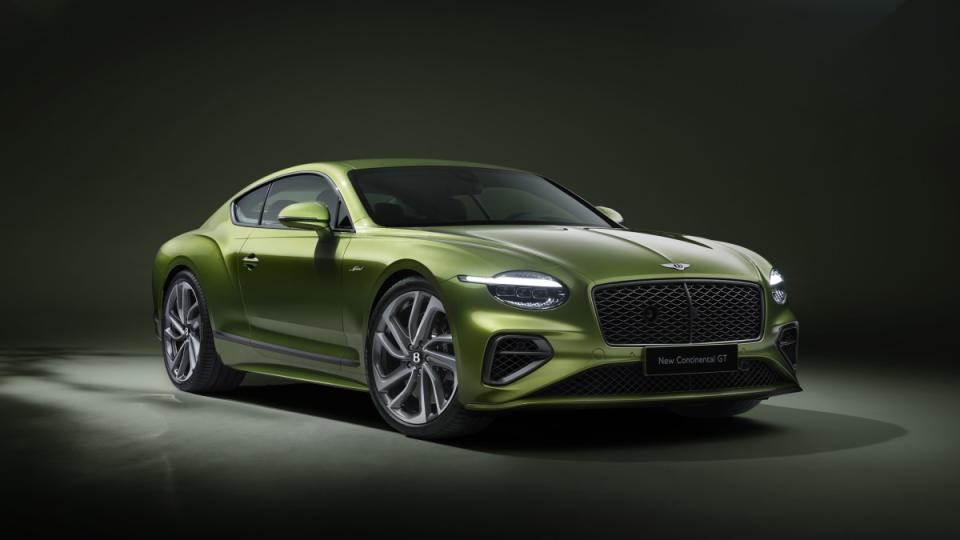2025 Bentley Continental GT Speed launches 771-hp PHEV powertrain

In getting us ready for the 2025 Bentley Continental GT Speed, the automaker from Crewe hyped the coupe's Ultra Performance Hybrid engine, not the car. That's because we already know what to expect of any modern Bentley — opulence + velocity. The only question is how many horses will be used to fulfill the second part of the formula, and what kind of engine will make them. In this case, it's a twin-turbocharged 4.0-liter V8 producing 584 horsepower on its own. When assisted by the 187-hp electric motor between the engine and eight-speed dual-clutch transmission, combined output is a very cheery 771 hp and 738 pound-feet of torque, making this Conti another notch in VW's Year of Living Powerfully. Throughout the VW Group, the Porsche Taycan, Audi E-Tron GT, Audi RS Q8 Performance, and this new Bentley have all set benchmarks for being the most powerful roadgoing products their respective brands have ever produced.
For reference, the current GT’s W12 engine produces 650 horsepower and 664 pound-feet of torque, propelling the car to 60 mph in 3.5 seconds. The new coupe is said to take 3.1 seconds to 60 mph, the convertible one tenth behind. The current V8 makes 542 horsepower and 568 pound-feet of torque.
The 25.9-kWh battery behind the rear axle provides a few benefits. First, it powers that e-motor, and Bentley programmed this powertrain to recharge the pack while driving, a feat the Bentayga PHEV isn't designed to do. Second, it can power pure-electric driving up to 87 miles per hour, although not for long; claimed electric range is 50 miles on the European cycle. But wait, there's more: The Continental's battery placement is said to bestow the coupe with a 49:51 weight distribution, improving on the 55:45 balance in the current GT range and establishing the best balance we've seen in a Bentley. The price of all this goodness is a 400-kW electrical architecture and a maximum charging rate of 11 kW, meaning a three-hour charge time to get the battery from empty to full.

 Yahoo Autos
Yahoo Autos 